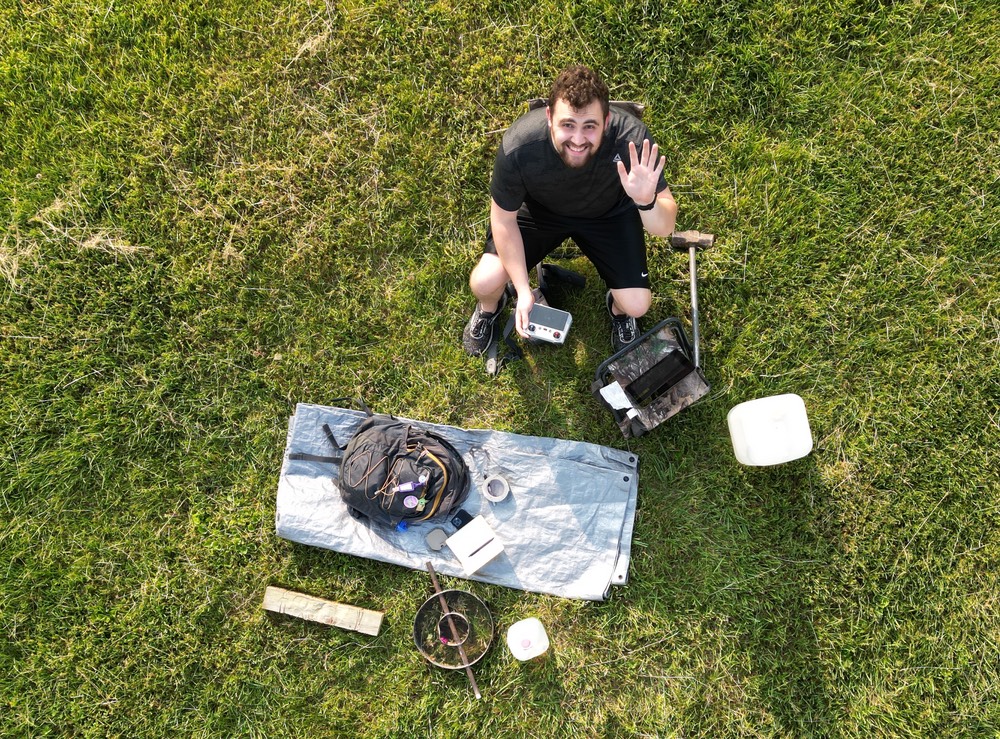Alexander Brant
 In the summer of 2017, a large crowd was enjoying the water at Cummins Falls when,
unbeknownst to them, a storm was raging upstream. Because the skies were still clear
at the falls, the people there were taken by surprise when the water level rose about
six feet within a few minutes. Two swimmers lost their lives in the swift-flowing
water.
In the summer of 2017, a large crowd was enjoying the water at Cummins Falls when,
unbeknownst to them, a storm was raging upstream. Because the skies were still clear
at the falls, the people there were taken by surprise when the water level rose about
six feet within a few minutes. Two swimmers lost their lives in the swift-flowing
water.
Since then, flash-flood sensors have been installed at the park, however, one Tennessee Tech student is helping to give park rangers an even better idea of when it’s not safe to be at the falls. Alexander Brant, a senior geology major with a concentration in environmental geology, has tackled the project as part of Tech’s Creative Inquiry Summer Experience (CISE) Grant Program. The program provides monetary assistance for paid summer internships that help students develop research and creative inquiry skills.
“There have been efforts with setting up rain gauges and few other things to be able to allow us to warn people when it’s not safe to go to the park, but with a lot of these calculations, they had forgotten to have one important thing – infiltration,” Brant said.
Infiltration, he explained, is when rainwater soaks into the ground. If there is more rainwater than the soil can absorb, the water remains on the surface of the soil and becomes runoff, which can lead to flooding. The flash flood warning system at Cummins Falls needed to include this calculation in order to more accurately predict when the water levels have the potential to rise rapidly.
“For my CISE research, what I did was to focus on getting these infiltration rate measurements to build a stronger understanding of the watershed, which is the Blackburn Fork Watershed, that feeds into Cummins Falls,” Brant said. “We wanted to see what might be happening or what kind of techniques can we use to be able to identify and implement into the warning system.”
Over this past summer, Brant visited more than 20 sites to test infiltration rates along the Blackburn Fork River.
“I was usually at a site for about an hour or an hour and a half, which is pretty long when you're sitting outside in the middle of an open field under the sun,” he said with a laugh. “But it was definitely a wonderful experience to go out into the field and take these measurements. It helped me build a lot of experience.
Though he just received the grant this past summer, Brant has actually been working on the project since his freshman year. He worked alongside fellow student Jason Gentry in 2020, who introduced him to the flood warning system. Sadly, Gentry passed away in 2022, but Brant has carried on their research all through his own undergraduate career with support from his project advisor, Evan Hart, professor of earth sciences at Tech.
The kindness and comradery of Tech students was what convinced Brant to come to the university in the first place, he said. He visited the campus in 2020 soon after the tornado that destroyed a large swath of homes in Cookeville and killed 19 people. He was impressed to see Tech students coming together in the aftermath to volunteer their time to help with the cleanup and take care of those affected.
“I saw everyone working together and having a bond,” he said. “That made me want to come to Tech. I just thought, ‘Man, this is an amazing department; this is an amazing campus.’ So, I kind of fell in love.”
Now, Brant is working on finishing up his senior year and plans to continue working on measuring water infiltration for his senior project. It is his hope that, in addition to gaining experience in his field, the work he is doing will also be able to be used to improve the safety of visitors to Cummins Falls, and ultimately save lives.
“Hopefully we're able to make a difference,” he said.

